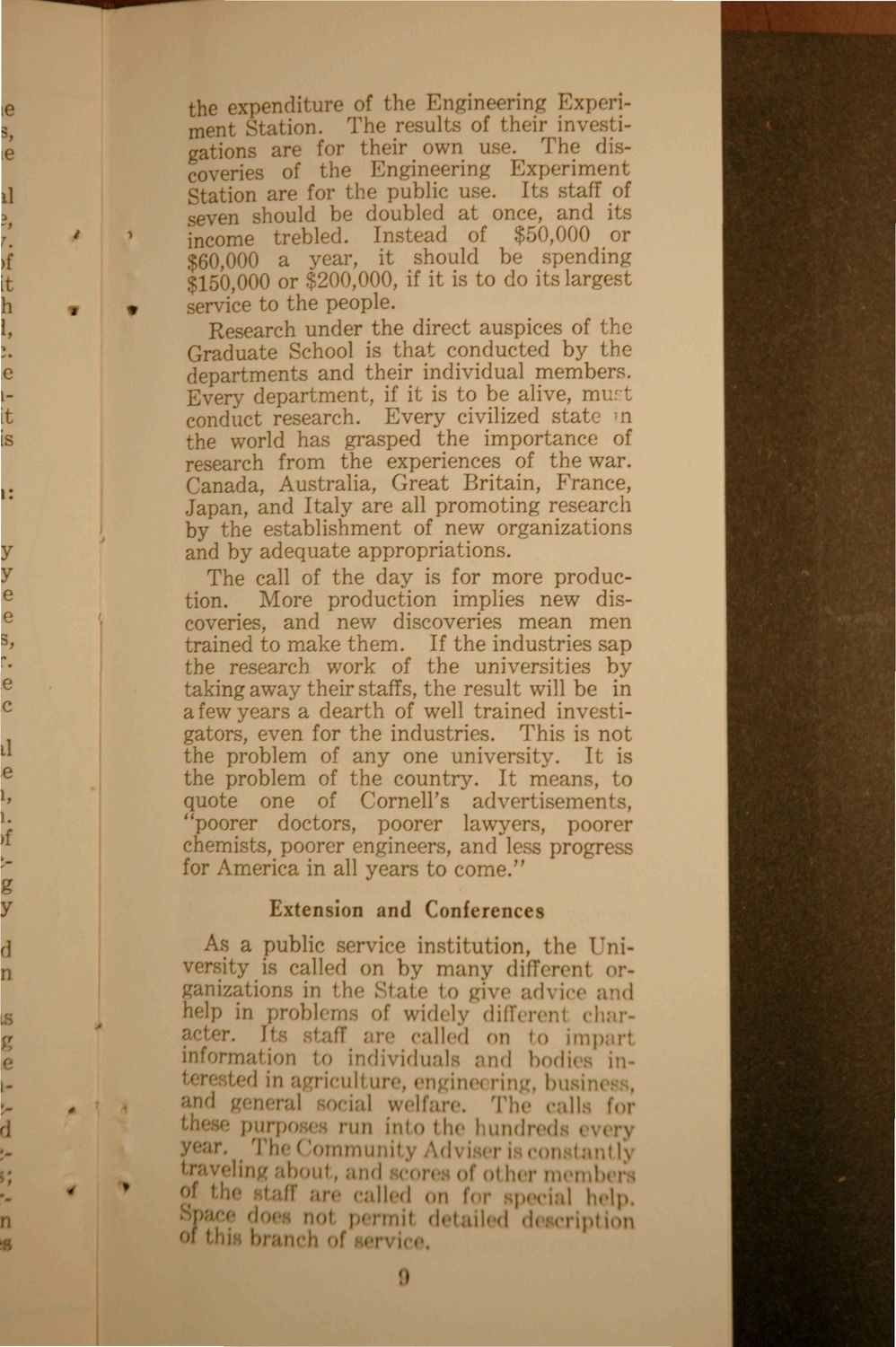| |
| |
Caption: Booklet - Status of University
This is a reduced-resolution page image for fast online browsing.

EXTRACTED TEXT FROM PAGE:
the expenditure of the Engineering Experiment Station. The results of their inv ligations are for their own use. The discoveries of the Engineering Experiment Station are for the public use. Its staff of seven should be doubled at once, and it income trebled. Instead of $50,000 or $60,000 a year, it should be spending $150,000 or $200,000, if it is to do its largest service to the people. Research under the direct auspices of the Graduate School is that conducted by the departments and their individual members. Every department, if it is to be alive, mur t conduct research. Every civilized state in the world has grasped the importance of research from the experiences of the war. Canada, Australia, Great Britain, France, Japan, and Italy are all promoting research by the establishment of new organizations and by adequate appropriations. The call of the day is for more production. More production implies new discoveries, and new discoveries mean men trained to make them. If the industries sap the research work of the universities by taking away their staffs, the result will be in a few years a dearth of well trained investigators, even for the industries. This is not the problem of any one university. It is the problem of the country. It means, to quote one of Cornell's advertisements, "poorer doctors, poorer lawyers, poorer chemists, poorer engineers, and 1 s progress < for America in all years to come/' Extension and Conferences As a public service institution, the University is called on by many different oi ganizations in II State to giv< lvic< tn< help in problems of widely diffei ter. It t flf called on to im] inform ion to individuals and 1 >dies inI in agriculture, en ine< ri busi • . d I ocial well . The < lis f purpo run i i t h lumdi < y Tl mn idvi i >ling out, and f oth< r i f thi fT dl I o n i d< s i I ) m i l detail< I d \ pi] n f tl in h ii i
| |